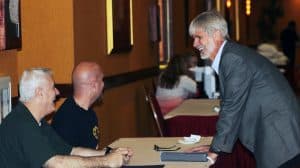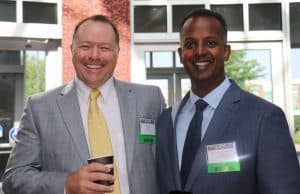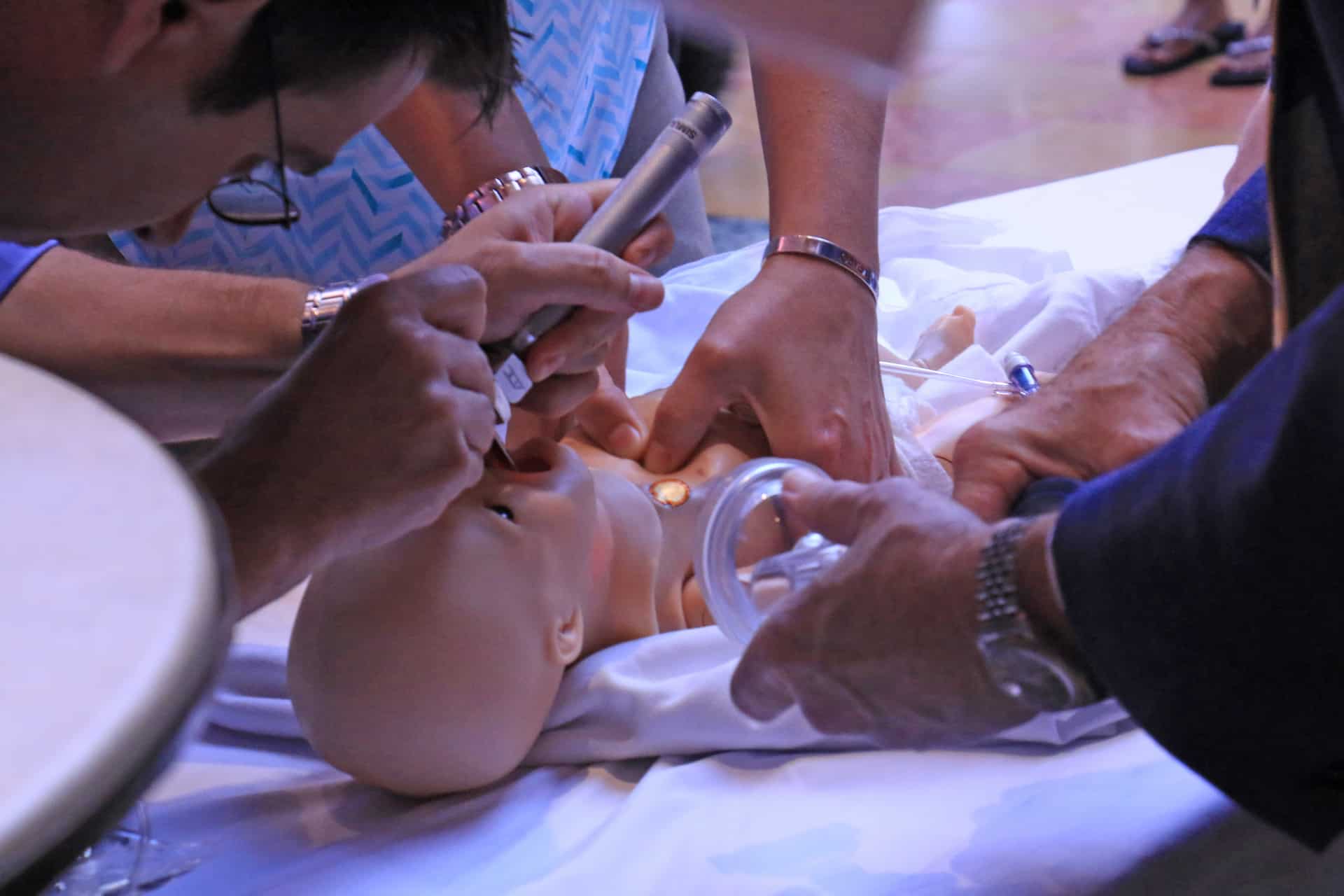Conference Focuses on Treatment for Emergency Situations
| July 30, 2015 | An anxious and worried mother rushes into an emergency room holding her sick baby. She’s obviously troubled but speaks little English.

Mike Anders, Ph.D., stops to converse with members of the Rogers Fire Department. Anders presented the hands-on simulated session during the conference.
Doctors and nurses rush to help the baby and soon realize the mother is not feeling well herself. Within minutes, the emergency room fills with a half dozen people all experiencing similar symptoms. Many are from a nearby factory. The doctors, nurses, paramedics, firemen, and hazardous material response team work together to figure out what has happened to the patients and how to treat them.
The scenario was part of a disaster response and procedural skills training through simulation. It was followed by a debriefing period. Participants reflected on their strengths and ways they could improve response and treatment based on the performance.

Conference directors Rawle “Tony” Seupaul, M.D., and Lee Wilbur, M.D., pose for a photo Friday morning during the ICARE Conferences hosted in part by UAMS.
The simulated disaster response was one of many sessions during the ICARE (Improving critical and acute care through regional education) conference at the John Q. Hammons Conference Center in Rogers, and sponsored in part by UAMS.
Other sessions included improving pre-hospital quality of care, innovations in access to care in the Emergency Department, and controversies in critical care. Participants also attended a hands-on session working with personal protection equipment and learned about guidelines in infectious disease management.
The conference featured speakers from 20 health care professionals from several states and many backgrounds, including Rawle “Tony” Seupaul, M.D., chair of the Department of Emergency Medicine in the UAMS College of Medicine.
“The conference was a great opportunity for continuing education among health care professionals,” said Seupaul. “Making sure we’re using the most effective strategies for administering care is something I believe all health care professionals strive to do.”
Other ICARE sponsors were Washington Regional Medical Center in Fayetteville, Arkansas Regional Organ Recovery Agency (ARORA) and the Arkansas Department of Health.
